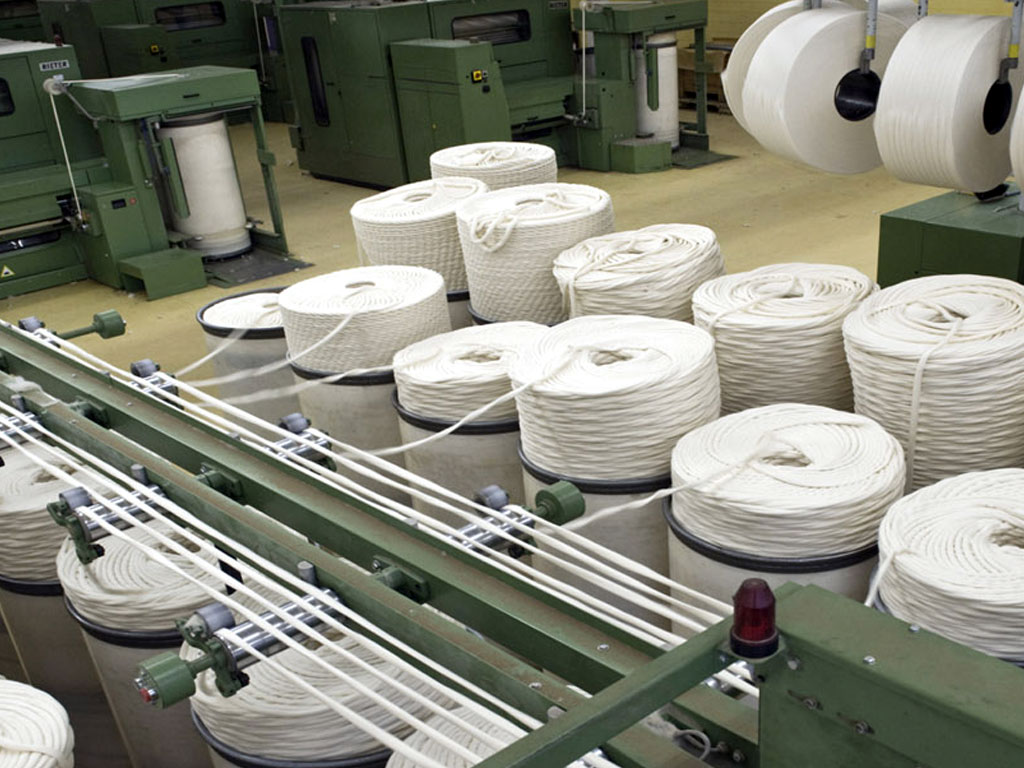APTMA's plea

All Pakistan Textile Mills Association (APTMA) seems to have pinned its hopes on PTI's government's new economic team to overcome the economic crisis now facing the country. According to Zahid Mazhar, Chairman APTMA of Sindh-Balochistan, "the new economic team is capable enough to bring Pakistan out the present alarming economic situation of the massive fiscal and current account deficits, rising trade gap, unprecedented depreciation of Pak rupee, highest discount rate in the region, increasing trend in inflation and negative growth in LSM." In order to turn around this depressed situation, it is imperative to increase exports substantially and only textile industry is capable enough to double its exports over the next five years. Manufacturing sector is already overburdened with high rate of taxation and can't sustain additional burden. Additional taxation on the LSM will only lead to further de-industrialisation and shrinkage of GDP. Zahid Mazhar also demanded government investigate and review the energy policy and banking policy which are anti-industry. Billions of rupees in sales tax, customs rebate, etc., have been stuck, causing great sufferings to the largest foreign exchange earner. The government had announced issuing of Promissory Notes by the end of February this year to liquidate these refunds but these have not been issued till date. Pakistan has already lost its share in World Textiles and Clothing Trade from 2.2 percent in 2006-07 to 1.7 percent in 2017-18 and could lose further. Comparing Pakistan with regional competitors, Zahid Mazhar said that some of the major issues in the country are high cost of doing business, inordinate delay in payment of refunds to exporters, highest interest rate in the region, high cost of energy, shortage of raw materials, credit availability as well as working capital and low skill level and productivity. He also urged the government to give immediate attention to the cotton crop which has witnessed a massive decline over the last four years. Adequate finance and credit facility is vital for the enhancement of an industry but banks are extending major portion of their funds to the government while the textile industry is facing financial constraints.
Observations expressed by Mazhar who is an important member of APTMA, appear to be very valid and quite convincing but apparently fail to take into account fully the macroeconomic conditions prevailing in the country and, therefore, are mostly centered on his own industry. Some of his remarks are fully justified. For instance, a massive increase in industrial growth and exports is vital for resolving the most major issue of the external sector deficit and it is only the textile industry that could really help the country get out of a dismal situation in the short run. There is no doubt that other industries and exports could also deliver the necessary results but it would take a long time to build their necessary infrastructure in order to make them more productive and competitive in the international market. The shrinkage of share of Pakistani exports in the World Textile and Clothing Trade is definitely a matter of concern and the reasons of country's poor performance need to be fully analysed, especially when the exports of other countries like Bangladesh and India are increasing at a rapid pace. Necessary training to the workforce is of course necessary but it is also the weakness of APTMA that it has not been able to set up proper training centres anywhere in the country. APTMA's grouse that withholding of refunds has caused great suffering to the industry and the government has failed to issue Promissory Notes by end February as promised is also fully justified and needs to be looked into on an urgent basis to resolve the liquidity problems of the textile industry. Pakistani exporters are losing their trading associates abroad and it will not be easy to earn their trust again. The government's policy to import cotton to make up for the shortfall in domestic production is also somewhat flawed. The duty on cotton import makes it expensive for the local industry to manufacture globally competitive items.
However, some of the suggestions of APTMA are not likely to be accepted, especially after the IMF programme is implemented. For example, we should not expect relief or concessions in the next budget when the government has to reduce the primary deficit by such a big margin in FY20 and raise additional taxes of Rs 700 billion. Similarly, monetary policy is likely to be tightened further when inflation is on the up and current account deficit is unsustainable. As such, speaking of lower or concessional rates of interest at this stage is a waste of time. It is also apparent that the cost of energy cannot be reduced further at this juncture to provide a competitive edge to APTMA. What the APTMA could expect is a further depreciation of the rupee to make their products competitive in the global market but Mazhar seems to have forgotten to talk about such a possibility.






















Comments
Comments are closed.